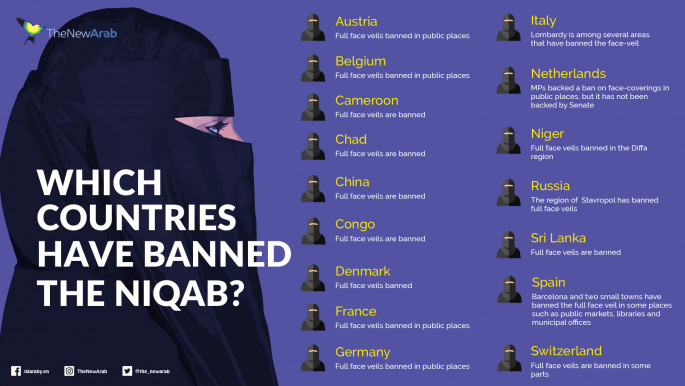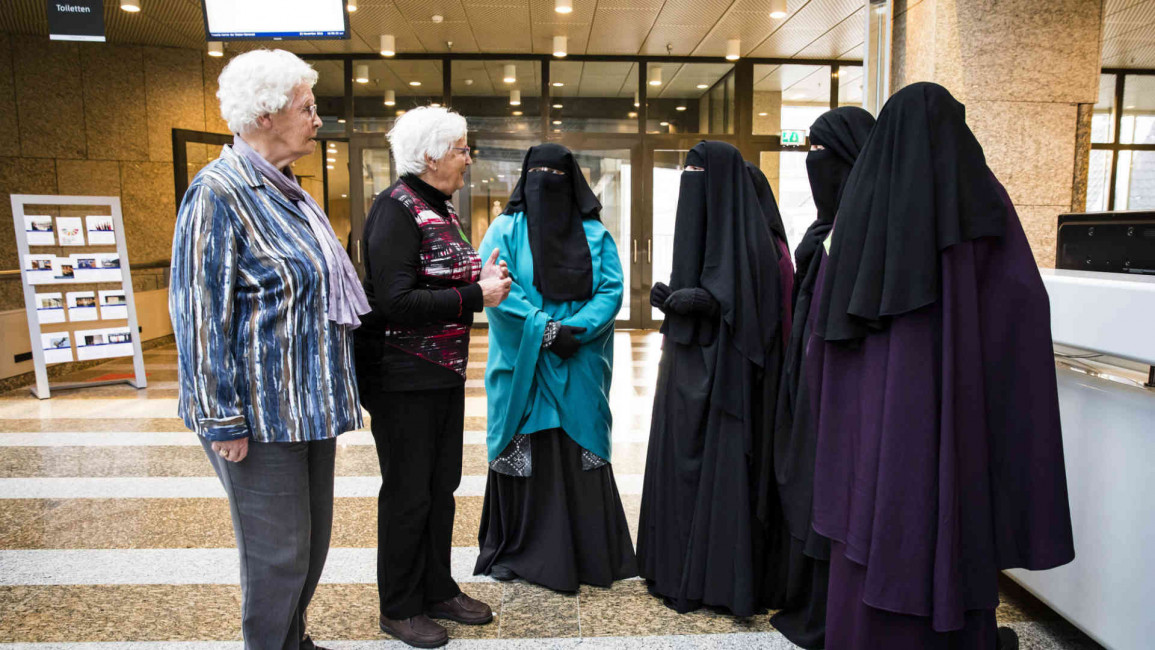'Islamophobic' burqa ban comes into effect in the Netherlands
A new Dutch law has come into force on Thursday banning face-covering clothing - including the burqa and niqab worn by conservative Muslim women - on public transport, in government buildings and at health and education institutions.
The Netherlands, long seen as a bastion of tolerance and religious freedom, is the latest European country to introduce such a ban, following the likes of France, Germany, Belgium, Austria and Denmark.
Muslim and rights groups have voiced opposition to the law - formally called the "partial ban on face-covering clothing".
An Islamic political party in Rotterdam has said it will pay the 150-euro ($167) fines for anybody caught breaking it.
The amount of women in the Netherlands that wear the burqa or niqab is estimated to be between 200 to 400. It is unclear how strenuously the law will be enforced.
Hospital and public transport staff have already said they won't enforce the law and Dutch police indicated they won't treat it as a hig-priority offense.
|
"That means the law is unworkable," spokesman of the public transport sector Pedro Peters told Dutch newspaper AD.
"The police told us they will not attend incidents on a train, bus or metro within half an hour so that means we would be stuck. The service cannot be interrupted."
AD published an explainer on how an individual can respond if they feel "bothered" that a Muslim women wearing a face veil is breaking the new law.
The suggestion was retweeted by far-right politician Geert Wilders, who introduced the ban in 2005.
"Today the burqa ban became law. Now we can start working on the next step: a headscarf ban in The Netherlands," he tweeted, adding women who want to wear the burqa should move to Saudi Arabia or Iran.
Voices on the Dutch political left have expressed concern that rhetoric such as this will expose Muslim women to harrasment and violence.
"Imagine that it comes to a citizens arrest and someone forces a women to the ground, waiting for the police. That person could have certain motivations that venture more to the side of Islamophobia than love for the rule of law," Political Editor Lamyae Aharouay tweeted in Dutch.
Amnesty Netherlands is against the the partial ban, tweeting that the new law "doesn't solve any problems and violates human rights".
France was the first country in Europe to ban face veils almost ten years ago. A UN committee has ruled the legislation is in violation of human rights.
Agencies contributed to this report.
Follow us on Twitter: @The_NewArab



